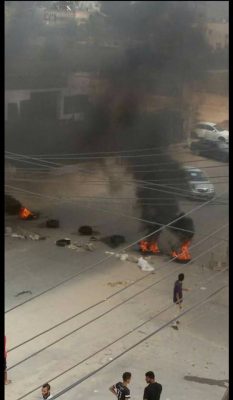By Sami Zaptia.

London, 10 October 2016:
The General Electricity Company of Libya’s (GECOL) Interim Steering Committee, appointed by the Faiez Serraj-led Presidency Council/Government of National Accord (PC/GNA) has promised that power cuts will be ‘‘notably’’ decreased within 45 days.
GECOL revealed last week that it had held meetings within the company and with various Municipalities to discuss problems and as a result the company has now put in place ‘‘a three phase comprehensive plan’’ to resolve power cuts.
The first phase is the ‘‘urgent phase’’ of the plan which entails the restarting of a number of power generating units that are presently non-operational and the speeding up of some stalled technical and financial procedures. This phase is to take ‘‘no more than 45 days’’ and ‘‘its effect will be clear’’, GECOL said.
The second phase of the plan is a medium term plan which concentrates on projects such as the Khoms, South and the Al-Zahra projects which should lead to the addition of about 600 MW of power generation capacity to the network ‘‘within 6 months’’ (by 6th April 2017).
GECOL explained that the national electricity grid was still split into two sections. The first section stretches from Libya’s eastern border with Egypt to Benghazi while the second section includes the Wahat (Oasis) network and the western region network.
The total generation capacity of Libya’s power stations today was about 4,600 MW with consumption at about 6,000 MW leaving a deficit of about 1,400 MW which will result in an average of 6 hours of power cuts in the western network, GECOL reported.
GECOL also revealed that after meeting and reaching agreement with those Municipalities (Western Mountains, Zawia and Khoms) that had previously refused to take part in the equitable and organized power cuts to share the loads. As a result, it now expects power cuts will become shorter.
It will be recalled that in September GECOL had revealed that it had reached an agreement with the Mayors of the Greater Tripoli Municipalities which entailed that organized power cuts would be limited to a maximum of six hours and would now be enforced equally on all areas of the capital.
The announcement followed road closures and the burning of tyres by youth across the capital in anger and protest at the very long hours of power cuts forced in the city.
Sug il Juma youth had closed off the road leading to Mitiga airport after what they said were regular 12-hour power cuts. There were numerous other road closures, including Tripoli’s main east-west motorway. Salah-al-Deen and Zanata had also reported 12-hours of power cuts and Zawiet al-Dahmani and Tajura, for example, had reported 9 hours of power cuts.
The Faiez Serraj Presidency Council/Government of National Accord (PC/GNA) was also reported to have held a meeting with a number of Municipality leaders of Greater Tripoli as well as adjoining towns and cities to discuss the issue of power cuts.
GECOL had revealed that there is a proposal that Tripoli would get its own power station at Bir Sta Milad.
Further, it will be recalled that GECOL employees had taken part in a number of demonstrations in August due to the late payment of their salaries. During a one-day strike in Tripoli inn August, they had threatened to go on an indefinite strike, saying they had not been paid since March.
GECOL had also reported that it was unable to obtain foreign currency Letters of Credit from the Central Bank of Libya in order to import needed spare parts and that very few Libyans were bothering to pay their electricity bills – which was adding to the poor financial state of GECOL.
Equally, in July this year, the Faiez Serraj-led Presidency Council/Government of National Accord had fired the entire GECOL board on the grounds that it had failed to stop the power cuts.
Meanwhile, in the latest move by the Libyan National Army to take control of all levers of power in eastern Libya, Major-General Abdul-Razzaq Al-Nazhouri, dismissed officials in charge of state electricity company GECOL in the east of country and replaced them with a seven-man committee answerable to himself in September.
Nazhouri, appointed military governor of the area from Tobruk to Ben Jawad (in effect all of Cyrenaica) by House of Representatives president Ageela Saleh, has now ordered the new committee to solve the power shortages in the east and other issues such as the delays in salary payments for company staff.







